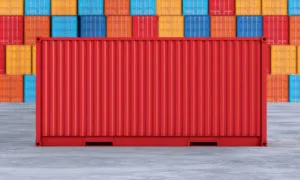Contêiner or Container? How to spell it in Portuguese? In the early years of the maritime navigation, all the goods were transported in casks. Electricity was not available that time for cranes and electric forklifts and therefore these casks used to be the perfect solution for being resistant, easy to handle in the shipping of products and not difficult to roll them in the boarding ramps present in the old vessels. As time went by, the history of the container kept evolving.
AND THEN HOW HAS A BOX OF STEEL CHANGED THE WORLD?
The shipping with a container (or contêiner – as it is in Brazil) is a solid foundation for the global economy yielding US$4 trillion dollars in goods every year, and that includes items such as clothing, electronics, foods and heavy machines.

HOW CAN WE SPELL IT IN PORTUGUESE: contêiner or container?
In Brazil, the word “contêiner” is the result of an English word adapted to the Portuguese language. It is also possible to find this entry in our Brazilian most popular dictionaries such as Houaiss, Aulete and Michaelis. They all share the same meaning: a metal or wood recipient that usually has a large size and it is always used to store and transport cargo in vessels, trains and others.
THESE DIFFERENT POSSIBILITIES COME FROM SOME SPOKEN LANGUAGES
Contêiner (Brazilian Portuguese)
Contentor (European Portuguese)
Container (English)
Contenedor (Spanish).
In case you should write in another language, it is recommended to either use either in quotations or in italics. We may write in any language as long as we follow basic rules in Portuguese respecting the plural forms in this chosen language.
Contêiner – Contêineres;
Contentor – Contentores;
Container – Containers.
Contenedor – Contenedores.



